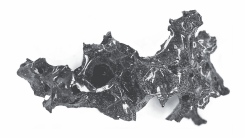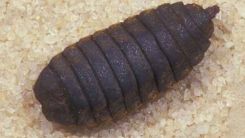
Hannah C.

"Superhabitable" Exoplanets May Be Better Than Earth
Ozone Layer May Fully Recover Despite Holes Over the North & South Poles

NOAA Grants Ohio Researchers $1.1M To Develop Global Solution for Filtering Freshwater
Leaked Rocket Fuel May Have Contaminated Russia's Waters in the Kamchatka Region
Research on Supermassive Black Holes Receive the 2020 Nobel Prize in Physics
Researchers Decide to "Rehome" Laboratory Beagles Instead of Euthanasia

Mount Vesuvius Victim's Brain Cells Perfectly Preserved in Glass Remnants

Scientists Design New Stimulated Raman Scattering Microscope With Ultrathin Lens

Risky Animal Behavior Influenced and Triggered by Hunger

Fly Larvae May Become a Natural Antibiotic Against Plant Diseases
CONFESS Study Aims to Measure How Religious Practices Have Changed During the Pandemic
Getting Rhinovirus Can Build the Immune System's Defenses Against Coronavirus

Embryo Cannibalism May Be a Factor Behind the Megalodon's Gigantic Size
India's New Paper Test for COVID-19 Could Change Everything
Smartphone Study Reveals the Effect of Daily Spiritual Experiences on Mental Health

Immune System Protein Cocktail May Cure and Prevent Rotavirus

Amazon to Remove Coronavirus Halloween Mask for Sale in Line With Mental Health Awareness
How Physical Touch Today Gives "Mixed Signals"

Researchers Predict the Movement of Invasive Species Around the Globe by 2050

Mussel Exposure to Microfibers Cause Serious Physiological and Genetic Damage

Marine Biologists Think That Blue Whale Song Times Indiciate Specific Seasons
VIDA Diagnostics Receives FDA Clearance To Advance AI Lungprint Solution
New Study Associates Parasite With Various Neuropsychiatric and Behavioral Conditions

The Very Large Telescope Detects a Supermassive Black Hole With 6 Surrounding Galaxies

More Wisdom Equals Less Loneliness and Vice Versa, Research Says
Plant Power May Tackle Several Sustainable Development Goals
Researchers Around the World Share Atmospheric Changes During the Pandemic

Photoacoustic Technology Used to Develop 3D Finger Vein Biometric System

Five African Greys Isolated After Swearing at Visitors
Most Popular

Viruses vs Bacteria: Key Differences, How They Spread, and How We Treat Them

Recycling Myths vs Facts: What Actually Gets Recycled and How to Do It Right

What Is Conservation Biology? Key Strategies to Protect Species and Habitats

How Ice Cores Reveal Climate History: Insights from Paleoclimate Science and Ancient Data




